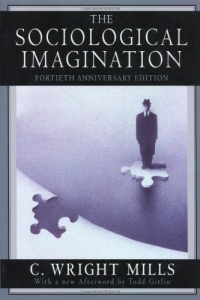By Kay Inckle, LSE Sociology Department
Since November 16th, when ex-footballer Andy Woodward revealed to The Guardian that he had been systematically sexually abused by his football coach at Crew Alexandra, a number of other players have spoken publically about their own experiences of sexual abuse (http://www.bbc.co.uk/news/uk-38107544). Once again British society is ‘rocked’ by revelations of the systematic sexual abuse of children by high-status men in positions trust and authority. Once again, we ask how this could happen on such a massive scale and without any interventions from the institutions that are supposed to protect children or from the communities in which they live.
I think it’s time that we stopped being ‘shocked’ by such revelations and started to ask some deeper questions about why the sexual abuse of children is so commonplace in British society. The ‘football abuse scandal’ follows closely behind similar institutional abuse scandals in the church, the media (Jimmy Saville), children’s homes, as well as the abuse that is a regular occurrence within individual family homes. Sexual violence must surely be considered a norm in our society rather than an anomaly: The Children’s Commissioner estimates that 1.3 million children currently living in England will experience sexual abuse before they are 18 years old while Rape Crisis England and Wales report that 31% of young women aged 18-24 have experienced childhood sexual abuse, and that there are 11 rapes and attempted rapes committed every hour. Likewise, our psychiatric hospitals, addiction services, homeless shelters and prisons are significantly populated by those who have been sexually victimised.
We need to ask ourselves why it is that this most devastating form of violence is such an everyday experience, and why do we silence, shame and institutionalise those who have been hurt? We also need to ponder why it is that childhood is structured in such a way as to render children so utterly powerless in the face of abusive adults, and what the impact of substantial rights for children might be both in regards to their vulnerability to abuse and our responses to it. We also need to ask why as a society at large, and our legal and judicial institutions, are so unwilling to acknowledge the scale of child sexual abuse and to respond appropriately to it. The fact that the government’s national inquiry into institutional sexual abuse seems utterly unable to function – now under its fourth chair and having also lost a leading lawyer and a prominent survivor group – is symptomatic of our society’s inability to face up to and effectively deal with the problem of child sexual abuse.
However, it is not helpful to deal with the sexual abuse of children simply by framing perpetrators as individual anomalies following their own perverse desires. Feminists have long highlighted that the personal is political, and nowhere more so than in regards to sexual violence. We need to recognise that all sexual abuse is about power, humiliation, violence and control, and that there is something about our society that allows this to flourish unchecked – it is, in C. Wright Mills’ terms, a public issue not a private trouble. We also need to consider what it is about our cultural attitudes to sexuality more broadly that makes us unable to discuss and address sexuality and sexual violence in healthy ways. Why, for example, is learning about sexuality still optional, and often poorly taught, in our schools?
The football revelations have also highlighted how our norms of gender and sexuality, and particularly masculinity, are also part of the enabling factors, not only for the abuse itself, but also the shame and secrecy that has maintained the silence of many of the affected footballers over the last thirty years. The culture of hyper-masculinity, which pervades many sports institutions, defines males as invulnerable, powerful and dominant, and fosters a culture of sexuality in which both homophobia and confusion between consensual and non-consensual sexual contact (with males or females) are the norm (the Ched Evans rape defence being a case in point). In this context sexual violation is an aberration of masculinity and, therefore, not only psychologically and emotionally devastating, but also identity-shattering. This is what makes Andy Woodward’s decision to speak out, initially alone, but then followed by others such a courageous act.
I hope that by speaking out and receiving the support, validation and respect that they deserve as survivors of abuse, that all those who have been sexually victimised can reclaim their lives and identities and move beyond the horrors that they have experienced. I also hope that these men’s courage in speaking out will lead to a deeper understanding of sexual violence and the structures of power which act as enablers to it, and that this transforms the wider norms of masculinity and sexuality, not least in sport. Perhaps this painful episode can bring football to the forefront of such a transformation, and then it might finally deserve the title of being a national institution and a role model for British society.
About the author: Kay Inckle is Course Tutor in the LSE Sociology Department. To find out more about Kay’s interests and work, click here.




